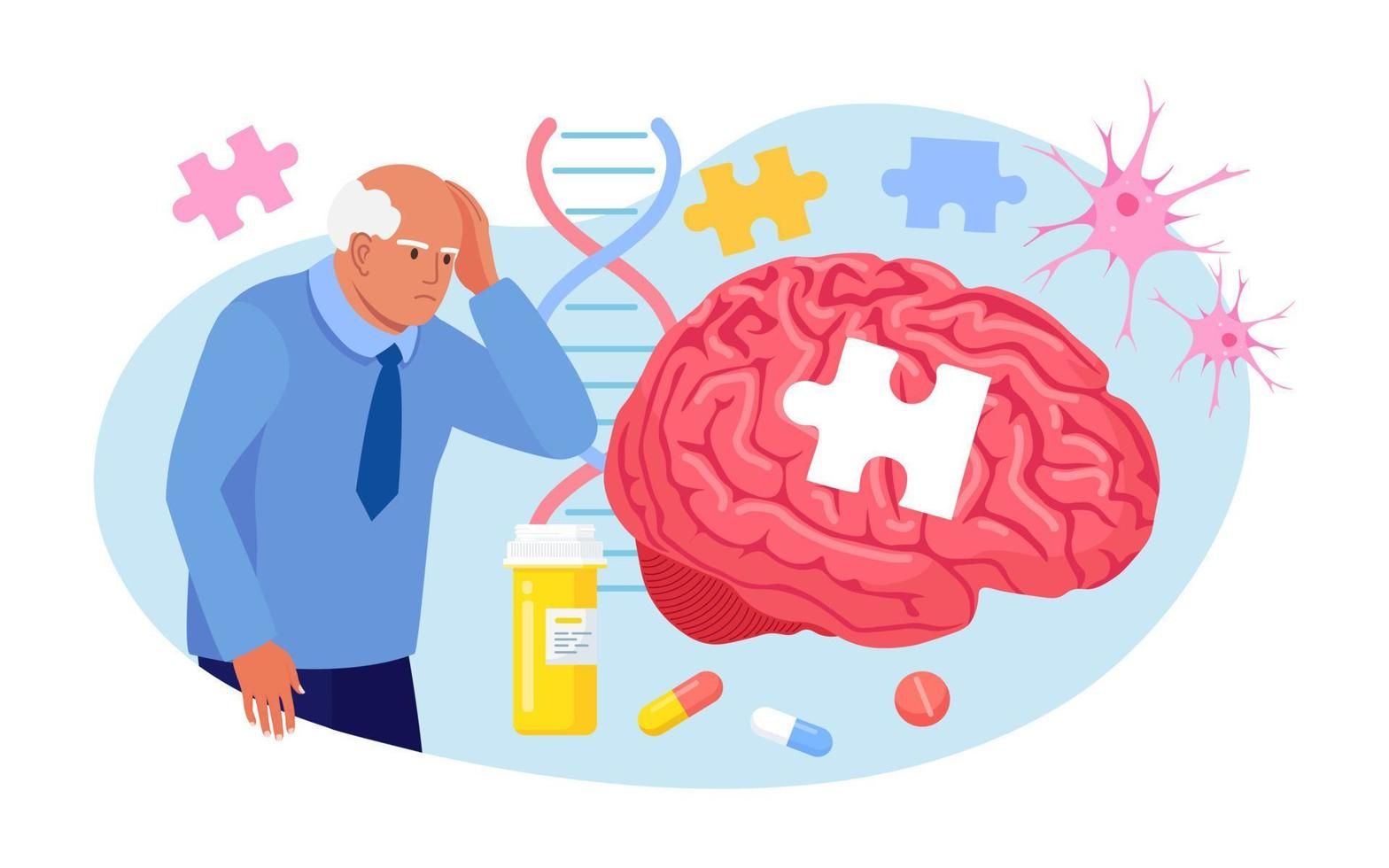What Causes It?
Age - The primary risk factor; risk increases significantly after age 65.
Genetics - Several genes increase risk, especially the APOE-e4 gene. Rare mutations in genes like APP, PSEN1, and PSEN2 can cause early-onset familial Alzheimer's.
Family history - Having a first-degree relative with Alzheimer's increases risk.
Amyloid plaque accumulation - Abnormal deposits of beta-amyloid protein fragment between neurons.
Tau protein tangles - Twisted fibers of tau protein inside neurons that disrupt transport systems.
Chronic inflammation - May contribute to brain cell damage and Alzheimer's progression.
Vascular health - Conditions affecting heart and blood vessels, like heart disease, stroke, high blood pressure, and high cholesterol, increase risk.
Head trauma - Severe or repeated head injuries may increase risk.
Less education - Lower levels of formal education are associated with increased risk.
Sleep disorders - Poor sleep patterns may contribute to Alzheimer's development.
Lifestyle factors - Poor diet, lack of exercise, smoking, and excessive alcohol consumption may increase risk.
Environmental factors - Some research suggests potential links to environmental toxins or infections.
Sex - Women have a higher risk, possibly due to longer lifespan or hormonal factors.
Signs & Symptoms
Memory loss that disrupts daily life - Forgetting recently learned information, important dates, or events; repeatedly asking for the same information.
Challenges in planning or solving problems - Difficulty following familiar recipes, tracking bills, or concentrating on tasks.
Difficulty completing familiar tasks - Trouble driving to familiar locations, managing a budget, or remembering rules of favorite games.
Confusion with time or place - Losing track of dates, seasons, or the passage of time; forgetting where they are or how they got there.
Trouble understanding visual images and spatial relationships - Difficulty reading, judging distance, determining color or contrast, or recognizing their own reflection.
New problems with words in speaking or writing - Trouble following or joining conversations, repeating themselves, struggling with vocabulary, or calling things by incorrect names.
Misplacing things and losing the ability to retrace steps - Putting items in unusual places and being unable to find them; may accuse others of stealing.
Decreased or poor judgment - Making bad decisions with money, paying less attention to grooming or cleanliness.
Withdrawal from work or social activities - Abandoning hobbies, social activities, or work projects due to changes experienced.
Changes in mood and personality - Becoming confused, suspicious, depressed, fearful, or anxious; easily upset when out of comfort zone.
Progressive symptoms - As the disease advances: severe memory loss, disorientation, behavioral changes, difficulty speaking/swallowing/walking.
